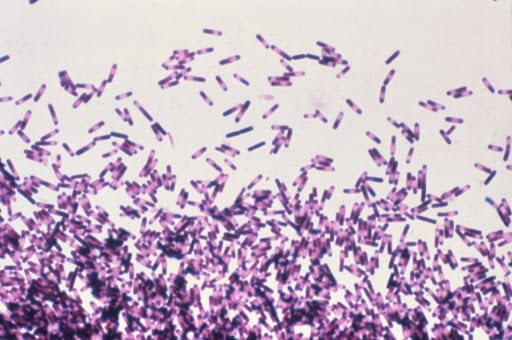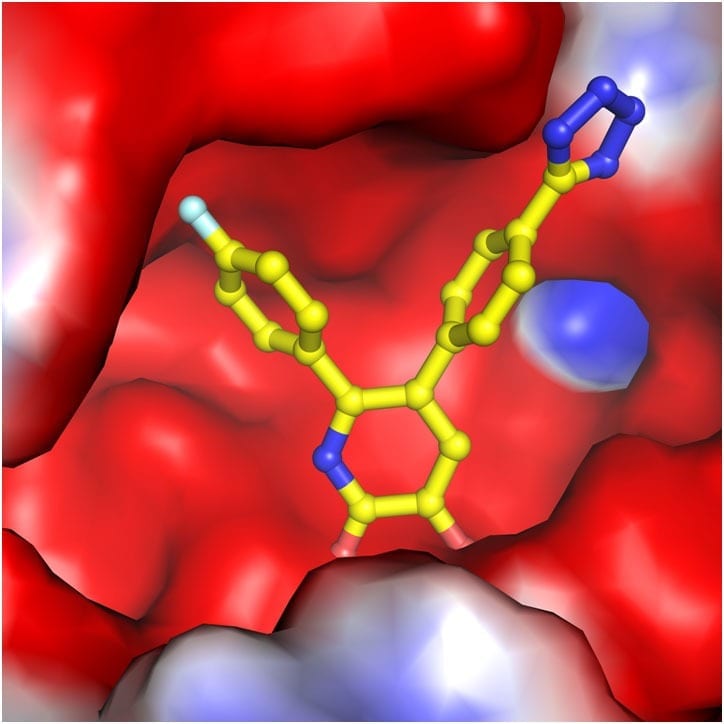
Other research shows treatment leads to high patient satisfaction
Swallowing pills containing a concentrate of fecal bacteria successfully stops recurrent bouts of debilitating Clostridium difficile (C. diff) infection by rebalancing the bacteria in the gut, suggests a study being presented at the IDWeek 2013™ meeting today.
Infection from C. diff bacteria is such a concern that the Centers for Disease Control and Prevention (CDC) named it one of the three most urgent threats in its recent landmark report on antibiotic resistance. C. diff sickens half a million Americans and kills 14,000 every year. C. diff infection can occur after people take antibiotics, wiping out the good bacteria in the gastrointestinal (GI) system, allowing C. diff to flourish and leading to severe diarrhea. In some patients, infection continues to recur despite standard treatment with antibiotics. For patients trapped in that cycle, doctors have transplanted feces from healthy donors into their GI system to rebalance the bacteria and stop infections from recurring.
Fecal transplantation typically is delivered by enema, colonoscopy (placing a tube in the colon) or nose tube and is effective in nine out of 10 patients, according to published reports. The IDWeek research suggests the less-invasive pills are a viable and effective delivery method.
“Recurrent C. diff infection is such a miserable experience and patients are so distraught that many ask for fecal transplantation because they’ve heard of its success,” said Thomas Louie, MD, professor of medicine at the University of Calgary, Alberta, and lead author of the pill study. “Many people might find the idea of fecal transplantation off-putting, but those with recurrent infection are thankful to have a treatment that works.”
Indeed, additional research being presented at the meeting showed patients who received fecal transplantation through a tube in the nose were highly satisfied with the treatment, and said they would likely recommend it to a friend.
Fecal Transplantation by Pill
University of Calgary researchers reported a 100 percent success rate – none of the 27 patients who took the tablet-sized pills had a recurrence of C. diff, even though all of them previously had had at least four bouts of the infection. Patients ingested between 24 and 34 capsules containing fecal bacteria, often donated by family members.
To make the pills, researchers processed the feces until it contained only bacteria, and then encapsulated the bacterial concentrate inside three layers of gelatin capsule. This ensured the pills wouldn’t leak or disintegrate until they were past the stomach and into the small intestine – a potential advantage over other methods because it covers more of the GI tract, does not involve invasive and more costly procedures, and is more comfortable for patients, Dr. Louie said.
Dr. Louie said he first made pills for fecal transplantation when one patient failed to respond to the enema method on two occasions and also could not tolerate a nasal tube for medical reasons. The pills are made individually.
“The pills are a one-shot deal and seem to work. They are easier for patients and are well-tolerated,” said Dr. Louie. “It’s an exciting development in the field and could possibly even be used to maintain the balance of bacteria in the GI system in patients at risk for C. diff.””
Patient Satisfaction of Fecal Transplantation
In the study of fecal transplantation tolerance, researchers surveyed 28 patients three months after they had undergone the treatment through a tube fed through the nose and GI system to the small intestine. On a scale of one to 10, average patient scores were: 9.6 for overall satisfaction; 9.9 for ease; and 9.9 for likelihood of recommending the procedure to a family member or friend.
“Patients with C. diff often have 20 or more stools a day, which seriously affects quality of life and so they are very open to this treatment,” said Ravi Kamepalli, MD, an infectious diseases physician at the Regional Infectious Disease-Infusion Center, Lima, Ohio, and lead author of the study. “Human beings are 90 percent bacteria and once that balance is altered with antibiotics, opportunistic infections can cause serious problems. All we are doing with this treatment is resetting the balance.”
The Latest Bing News on:
Clostridium difficile
- Seres Therapeutics Reports Q1 2024 Earnings: Surpasses Revenue Estimateson May 8, 2024 at 5:42 am
Revenue: Reported Q1 2024 revenue of $10.1 million from VOWST, surpassing the estimated revenue of $9.25 million. Net Loss: Q1 2024 net loss of $40.13 million, below the estimated net loss of $48.91 ...
- Nestle crunch: Seres’ bar for Vowst sales within grasp?on May 7, 2024 at 5:00 pm
About a year ago, when Seres Therapeutics Inc. won U.S. FDA approval of oral microbiome therapy Vowst (live fecal microbiota spores), the drug – meant to prevent recurrent Clostridium difficile ...
- A potential treatment for inflammatory bowel disease: Engineered yeast can transport medicines and lower inflammationon May 7, 2024 at 9:48 am
Inflammatory bowel disease (IBD) is a complex condition that requires individualized care to meet the needs of the patient's current disease state. With available medications sometimes causing serious ...
- Everything You Need to Know About C. diffon May 2, 2024 at 5:00 pm
C. diff is short for Clostridium difficile, an infectious bacterium that causes a condition known as clostridium difficile colitis. “Colitis” refers to inflammation of the wall of your colon.
- Page settingson January 9, 2024 at 8:03 pm
Source: Focus Medica. Infection of the large intestine (colon) caused by the bacteria Clostridium difficile. Long-term use of antibiotics reduces the normal bacterial population in the intestine ...
- Clostridium Difficile News and Researchon October 12, 2023 at 5:00 pm
Fecal microbe transplants from healthy donors can treat patients with recurrent Clostridium difficile infections. However, after tens of thousands transplants, little was known about which donor ...
- Vitamins by Conditionon August 16, 2019 at 2:29 am
Considering taking supplements to treat clostridium difficile infection? Below is a list of common natural remedies used to treat or reduce the symptoms of clostridium difficile infection.
- Clostridium Difficile | National Poston July 27, 2018 at 12:22 am
The concept of "detoxing" is a modern myth, derided by doctors in recent years. However, scientists in the U.S. have come up with the "anti-detox" — welcome to the strange world of poo-therapy ...
- Alteration of the Intestinal Microbiomeon December 3, 2013 at 9:37 pm
Clostridium difficile infection is increasingly common with a high risk of recurrence despite antibiotic treatment. In cases of recurrent C. difficile infection, fecal microbiota transplant (FMT ...
- Fidaxomicin: A Novel Macrocyclic Antibiotic for the Treatment of Clostridium difficile Infectionon June 18, 2012 at 3:16 am
Purpose The pharmacology, clinical efficacy, safety, dosage and administration, and place in therapy of fidaxomicin for the treatment of Clostridium difficile infection (CDI) are reviewed.
The Latest Google Headlines on:
Clostridium difficile
[google_news title=”” keyword=”Clostridium difficile” num_posts=”10″ blurb_length=”0″ show_thumb=”left”]
The Latest Bing News on:
Fecal transplants
- Microbiota Therapeutics Could Become Strong Ally in IBD Treatmenton May 2, 2024 at 5:00 pm
Microbiota therapeutics, such as fecal microbiota transplantation (FMT), could offer more diverse, personalized treatment options for patients with inflammatory bowel disease (IBD), particularly for ...
- Prospects for Crohn's Relief Brighten With New Advancementson May 2, 2024 at 1:39 pm
More than 1 million Americans live with Crohn’s, a chronic and sometimes crippling bowel disease that affects the intestines and leads to digestive issues. But in 2024, breakthroughs could bring ...
- Fecal Transplant Shows Promise for Easing Inflammatory Bowel Disease Symptomson April 25, 2024 at 4:45 pm
For the study, scientists reviewed results from 15 clinical trials that tested fecal microbiota transplants (FMT) — when stool with healthy microorganisms is inserted into a sick patient’s digestive ...
- Researchers conclude fecal transplants can rid patients of resistant gut bacteriaon April 15, 2024 at 5:00 pm
Fecal transplantation suppresses or even eliminates the abundance of resistant bacteria that patients possess. This protection is expected to last for the longer term. In the study, patients were ...
- Fecal transplants and gut health - Can stool heal?on April 12, 2024 at 5:00 pm
A new medical approach that smells bad, but is full of promise: fecal transplantation. The process involves taking stool from a healthy donor and implanting it into the gut of a sick individual.
- Stool transplant could improve motor symptoms in Parkinson’s diseaseon April 12, 2024 at 5:00 pm
A recent paper has highlighted the potential effect of fecal transplants on motor symptoms, which are one of the main markers of Parkinson’s disease. The study could pave the way for further ...
- Examining the Potential of Fecal Transplantation as a Parkinson’s Disease Treatmenton April 8, 2024 at 10:05 pm
Conclusion Fecal microbiota transplantation shows significant promise as a novel therapeutic option for early stage Parkinson’s disease patients. The potential for motor symptom improvement and ...
- Researchers Conduct First Fecal Microbiota Transplant in Dolphinson March 24, 2024 at 5:00 pm
The paper is the first of its kind to describe the use of fecal microbiota transplants (FMTs) in dolphins in peer-reviewed literature. Prior to this work, there were only a handful of anecdotal cases ...
- Fecal microbiota transplants: Past, present and futureon February 9, 2024 at 11:30 am
The premise of fecal microbiota transplants (FMT) is, admittedly, not the most pleasant. The process involves transferring donor stool (or derivatives thereof) to a recipient for a therapeutic purpose ...
- Fecal Microbiota Transplants: From Gut Infections to Psychiatric Disorderson July 26, 2023 at 8:54 am
Fecal transplantation is an established procedure for controlling recurrent Clostridium difficile infection by replenishing healthy bacteria in the gut. Researchers explore novel applications of fecal ...
The Latest Google Headlines on:
Fecal transplants
[google_news title=”” keyword=”fecal transplants” num_posts=”10″ blurb_length=”0″ show_thumb=”left”]










